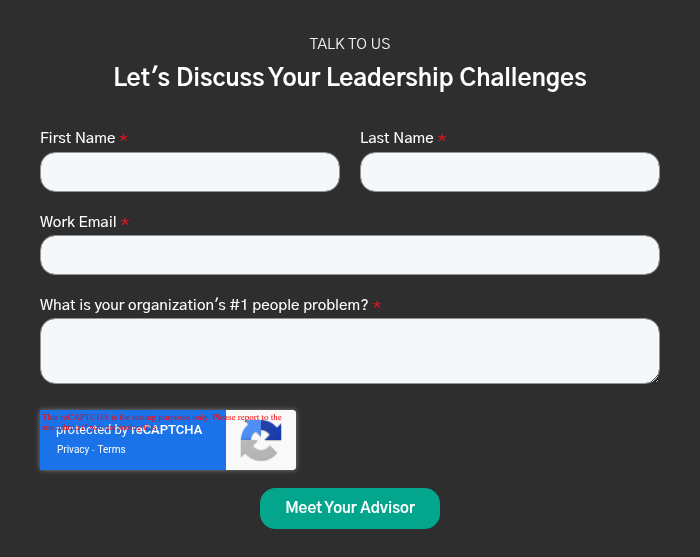Top 5 Emotional Intelligence Trends In 2025 Leaders Must Master
November 26th, 2024
5 min read
By John Gave

Many leaders feel overwhelmed by the demands of managing diverse teams, making tough decisions under pressure, and building meaningful connections while continuing to produce at a high level. If this resonates with you, 2025 presents the perfect opportunity to strengthen your leadership approach.
At The Metiss Group, we’ve helped thousands of leaders enhance their leadership skills and reduce stress through proven emotional intelligence (EQ) training.
In this article, you’ll discover:
-
How self-perception influences leadership success
-
Why self-expression matters more than ever in 2025
-
The top interpersonal skills leaders need now
-
The evolution of workplace decision-making
-
Strategies to effectively manage stress
The Emotional Intelligence Flywheel
This Emotional Intelligence (EQ) flywheel shows the five key areas that are most important to develop: Self-Perception, Self-Expression, Interpersonal Skills, Decision Making, and Stress Management.
Each part plays a role in improving well-being and performance. Let’s break down each one to see why it matters.
1. How Will Self-Perception for Leaders Play a Role in 2025?
Leadership begins with understanding yourself. Self-perception, a core pillar of emotional intelligence, equips leaders with the ability to recognize and manage their own emotions, identify their strengths and weaknesses, and assess how these traits influence their behavior and decisions.
In 2025, talented workers will still be in high demand, especially among Millennials and Gen Z. These younger groups value leaders who are caring, honest, and focused on a clear purpose. Leaders who are not self-aware may struggle to motivate and keep these workers, making the need for self-aware leaders grow quickly.
Picture this: You’re leading a critical project, and unexpected setbacks arise. Without awareness of your emotional response—whether it’s frustration, anxiety, or self-doubt—you risk letting those emotions dictate your actions, potentially derailing progress and morale.
Leaders with strong self-perception, however, can acknowledge these feelings, assess their impact, and make thoughtful adjustments to remain composed and focused.
In 2025, the growing emphasis on leadership transparency and authenticity will make self-perception even more essential. Leaders who embrace self-awareness will navigate challenges more effectively and foster a culture of honesty and trust.
By cultivating this foundational skill, you can lead with clarity, confidence, and purpose.
2. Why Will Self-Expression Be Important in the 2025 Workplace?
Self-expression is the ability to articulate your thoughts and emotions clearly.
Self-expression goes beyond simply speaking; it’s about communicating in a way that fosters trust, alignment, and collaboration--this is a leadership superpower.
In 2025, workplaces will be more diverse, shaped by globalization and multiple generations working together. This requires leaders to adjust communication styles and meet the specific needs of their teams. Leaders who can adapt effectively will build stronger relationships, earn trust, and encourage teamwork, setting themselves apart as exceptional leaders.
Consider this: You’re leading a team with varying communication preferences. One team member values direct feedback, while another thrives on encouragement and rapport-building. Without effective self-expression, your approach will resonate with some but alienate others.
By refining your ability to express thoughts and emotions, you can connect with individuals on their terms, ensuring your message inspires, motivates, and unites.
In 2025, leaders will need to bridge cultural, generational, and remote-work communication gaps. The emphasis will shift from one-size-fits-all communication to personalized, adaptive strategies positioned to empower teams.
Mastering self-expression will allow you to build stronger relationships, reduce misunderstandings, and create an environment where everyone feels heard and valued.
3. Back to Office Mandates Require Stronger Interpersonal Skills
Strong relationships are the backbone of effective teams, and interpersonal skills are the glue that holds those relationships together. This emotional intelligence pillar encompasses awareness, active listening, and the ability to navigate conflict constructively.
In 2025, as companies like Amazon, Disney, Zoom and others implement strict return-to-office mandates, hybrid and remote work models will continue to decline. Leaders must adapt by fostering innovative and genuine strategies to rebuild team cohesion and trust, which may have weakened during extended remote work periods.ownload Your Sample EQ 360 Report
We’ve all been in a scenario where two high-performing team members are cultivating tension. This inability to communicate always leads to a slowing down of progress which is extremely frustrating for leaders who are already stretched thin. Returning to the office means superstar employees who could largely ignore each other before are now forced to interact on a daily basis.
What do you do? Ignoring the issue risks further division and will likely result in an angry outburst that will be felt by the entire office and not just the two in conflict. If your leadership intervenes with strong interpersonal skills, you can turn the situation around.
Leaders who prioritize awareness and active listening can mediate conflicts, build mutual understanding, and restore alignment among team members.
In 2025, organizations will continue prioritizing relationship-building as a core leadership competency. Leaders who invest in their interpersonal EQ will not only resolve conflicts effectively but also foster an environment where collaboration, creativity, and innovation can flourish.
By strengthening this pillar, you ensure your team remains cohesive and high-performing, regardless of the challenges ahead.
4. How Will Workplace Decision-Making Evolve in 2025?
Decision-making is the ultimate test of a leader’s emotional intelligence. The ability to balance logic and emotion, consider diverse perspectives, and make thoughtful choices is what distinguishes good leaders from great ones.
In 2025, as decision-making becomes more complex and high-stakes, Emotionally intelligent leaders will excel by navigating uncertainty with confidence and clarity.
Imagine choosing between immediate profits and long-term values. Leaders with strong EQ weigh both the facts and emotional impact, ensuring decisions align with business goals and employee well-being. In times of change, such leaders foster trust, engagement, and resilience.
This pillar will remain essential for guiding organizations through an increasingly unpredictable landscape.
5. Why Will Stress Management Be Critical for Business Leaders in 2025?
Stress is inevitable in leadership, but the ability to manage it effectively is what separates leaders who excel from those who burn out.
Stress management, a cornerstone of emotional intelligence, enables leaders to maintain composure under pressure, adapt to changing circumstances, and support their teams through uncertainty.
It’s inevitable that workloads will become more demanding in 2025. This means that managing stress will become even more critical in the coming year.
Leaders who prioritize stress management, however, can navigate these moments with calm, focus, and resilience—setting the tone for their teams to follow.
In 2025, as the pace of change accelerates, the proximity of workers migrates even closer as they transition from the home, back to the office, leaders must model resilience and provide stability for their teams.
The ability to manage stress effectively not only preserves your well-being but also fosters a culture where teams feel supported and empowered to perform at their best. Mastering this emotional intelligence pillar ensures you can lead with strength, no matter what challenges arise.
Connect Top 5 Emotional Intelligence Trends In 2025 to Organizational Success
Emotional intelligence isn’t just a personal asset—it’s a strategic advantage for organizations. Leaders who embrace these emotional intelligence trends contribute to stronger leadership pipelines, enhanced employee engagement, and improved business outcomes.
Here’s how these trends translate into tangible benefits:
-
Enhanced Leadership Effectiveness: Leaders with strong EQ skills inspire trust, foster innovation, and drive performance across teams.
-
Improved Team Dynamics: EQ-focused teams communicate effectively, resolve conflicts constructively, and collaborate seamlessly.
-
Higher Employee Retention: When employees feel understood and supported, they’re more likely to stay engaged and committed to the organization.
Why Emotional Intelligence Will Drive Leadership in 2025
As leaders prepare for 2025, understanding and prioritizing emotional intelligence is no longer optional; it’s a critical driver of team success and organizational growth. Leaders often struggle with building authentic relationships, making balanced decisions, or managing stress effectively—challenges that can undermine their effectiveness and their team’s morale.
By focusing on the Top 5 Emotional Intelligence Trends in 2025 (self-perception, self-expression, interpersonal skills, decision-making, and stress management), you can transform these challenges into opportunities for growth and connection.
The next step is straightforward: start developing these EQ pillars now to future-proof your leadership and your team’s success. At The Metiss Group, we specialize in guiding leaders like you in our thoughtfully designed program, The Emotional Intelligence Journey™. This pillar of The Leadership Academy™ equips you with the EQ tools and strategies needed to thrive through 2025 and beyond.
Contact our team of behavior experts today and learn how focusing on the five emotional intelligence pillars in 2025 will improve your team’s awareness, understanding, motivation and performance. Just fill out the form below to get started.

